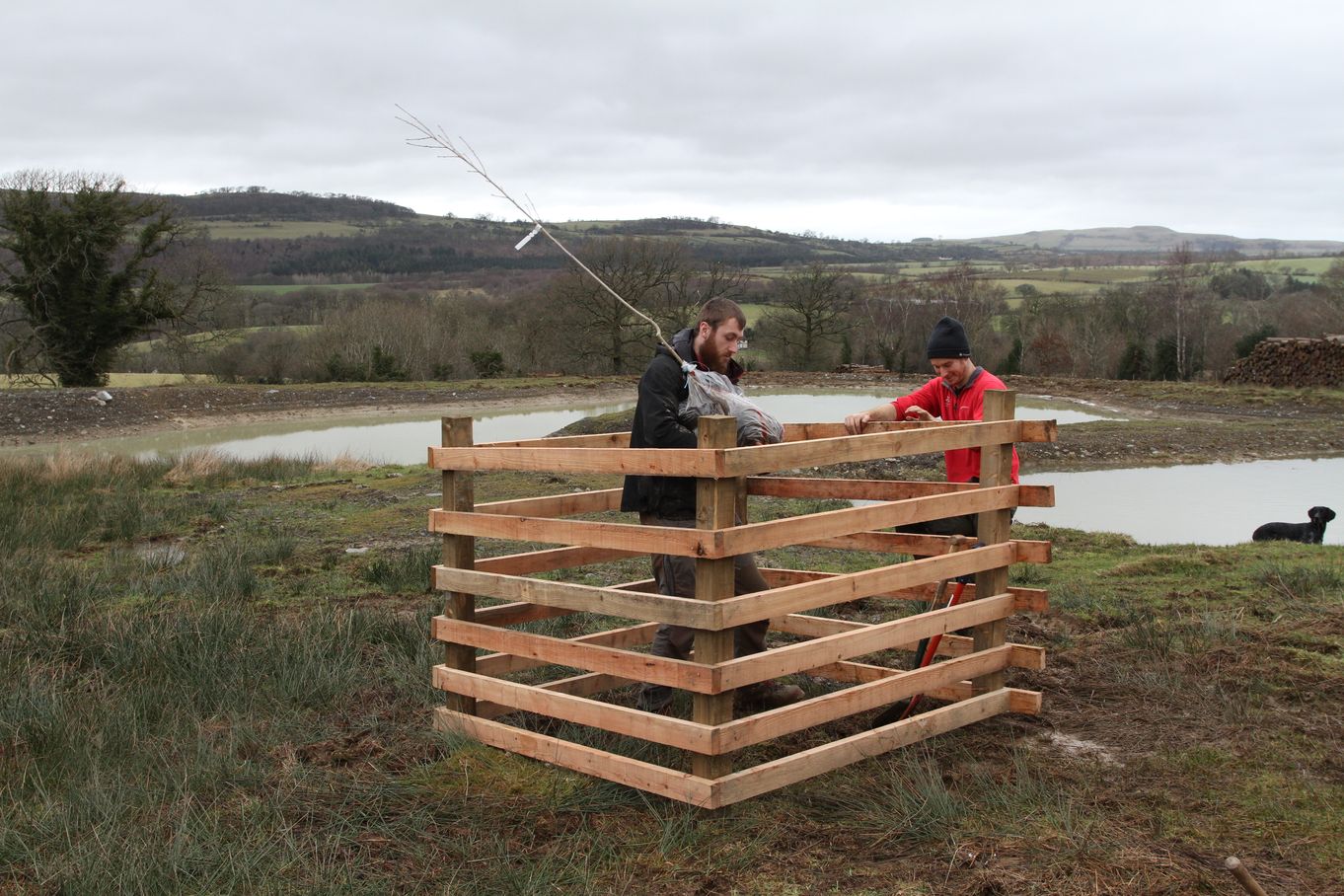Bringing Back Britain’s Rarest Native Trees, The Black Poplar
Last week, National Trust rangers planted 32 of the rarest native trees in Britain, the black poplar, at two separate sites in Cumbria. Once widely spread across the county, there were only 3 of these culturally and ecologically significant trees left in the Cumbrian landscape and an estimated 7000 across the country. With help from a specialist from London, trees of an ancient local strain were sourced and brought on location.
On Monday 22 January, 16 trees were put in the ground near the ponds at Kirkhouse farm on Dunthwaite Estate. The ponds were created over the summer as part of our Riverlands work to help keep water in the land for the livestock that graze on the fell as well as to add diversity to the landscape. With these new wetlands starting to establish, they were chosen as an ideal site for the water loving black poplar. On Tuesday, 16 more trees were planted at Goldrill Beck near Ullswater where our Riverlands team, along with our partners, completed their award-winning river restoration work.
Edwin Everitt-Stewart, Ranger, National Trust says: “Just over a year ago, I had never heard of the black poplar and for good reason, as it is one of our rarest trees! It is therefore amazing to be a part of the jigsaw of bringing the Black Poplar back to the British landscape, just one part of years of hard work and determination that have gone into saving this species from ecological collapse. Once the trees are established, they will grow up to 6’ in a year, so will soon make an impression on the landscape. I can’t wait to see the wildlife that makes them their home in the future – from the insects, birds, bats and who knows … maybe even an Osprey at Goldrill!”
These precious trees which were once commonly found within our hedgerows, have been in steady decline since the second world war when the draining of agricultural land greatly diminished their preferred habitat. The faster growing American poplar was also introduced which was favoured for its straighter trunk and widely grown to produce matches and fruit crates. With the continued work to restore rivers and wetlands throughout the Lake District, we hope to see the return of the black poplar so that it may continue to perform its important eco-function and once again become a recognizable feature of the Cumbrian farmland landscape.
Did you know?
Black poplars are an important wetland tree species that belong to the wider willow family or Salicaceae. These trees produce salicylates, important medicines which are both antifungal and antibiotic, which are distributed throughout the wetland ecosystem as aerosols in the air we breathe, as soluble compounds in the water for aquatic life and within their pollen and nectar for our pollinators. Black poplar then not only provide an early source of food to our bee and butterfly populations, they also help to ensure the health of the entire ecosystem.

